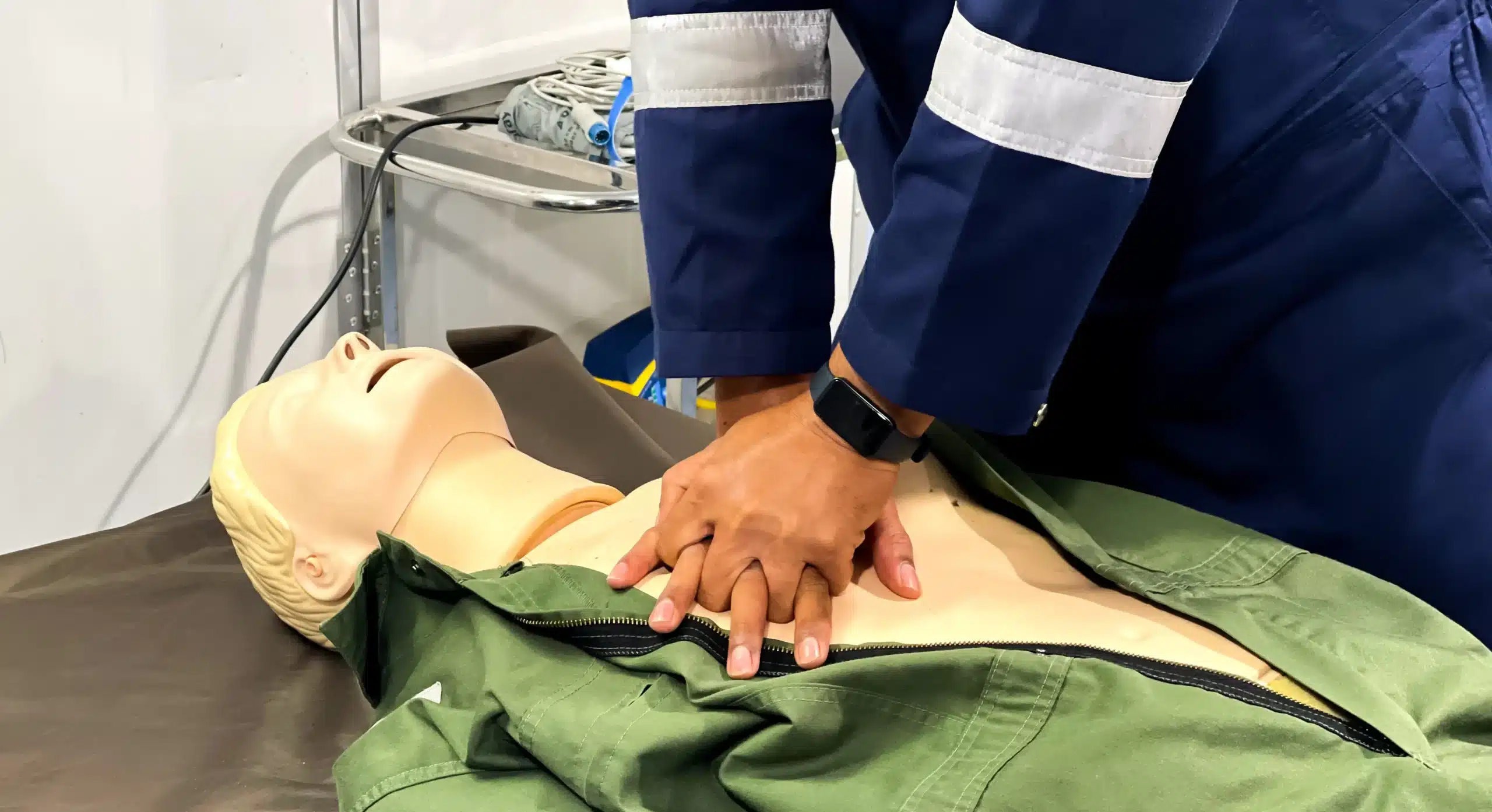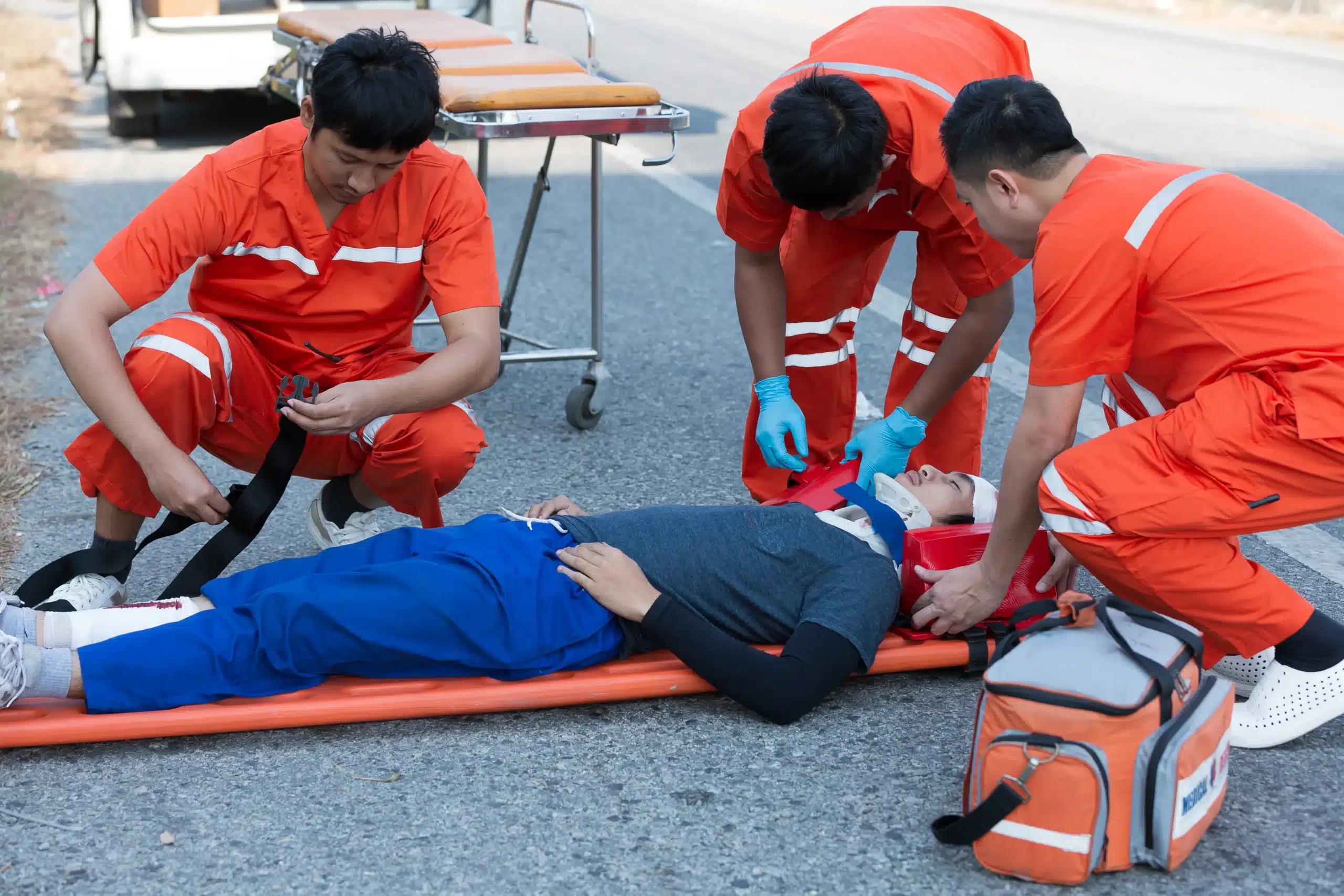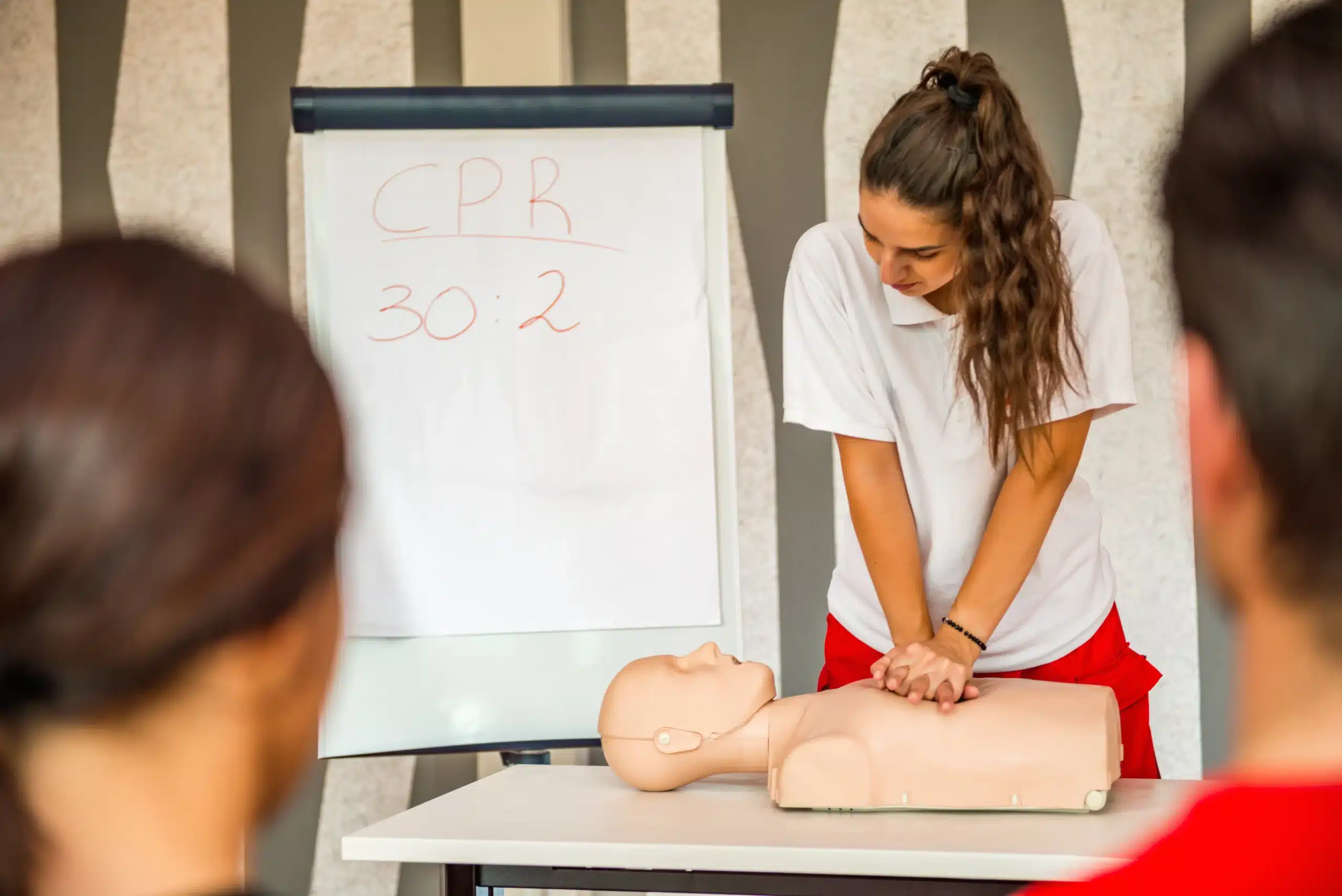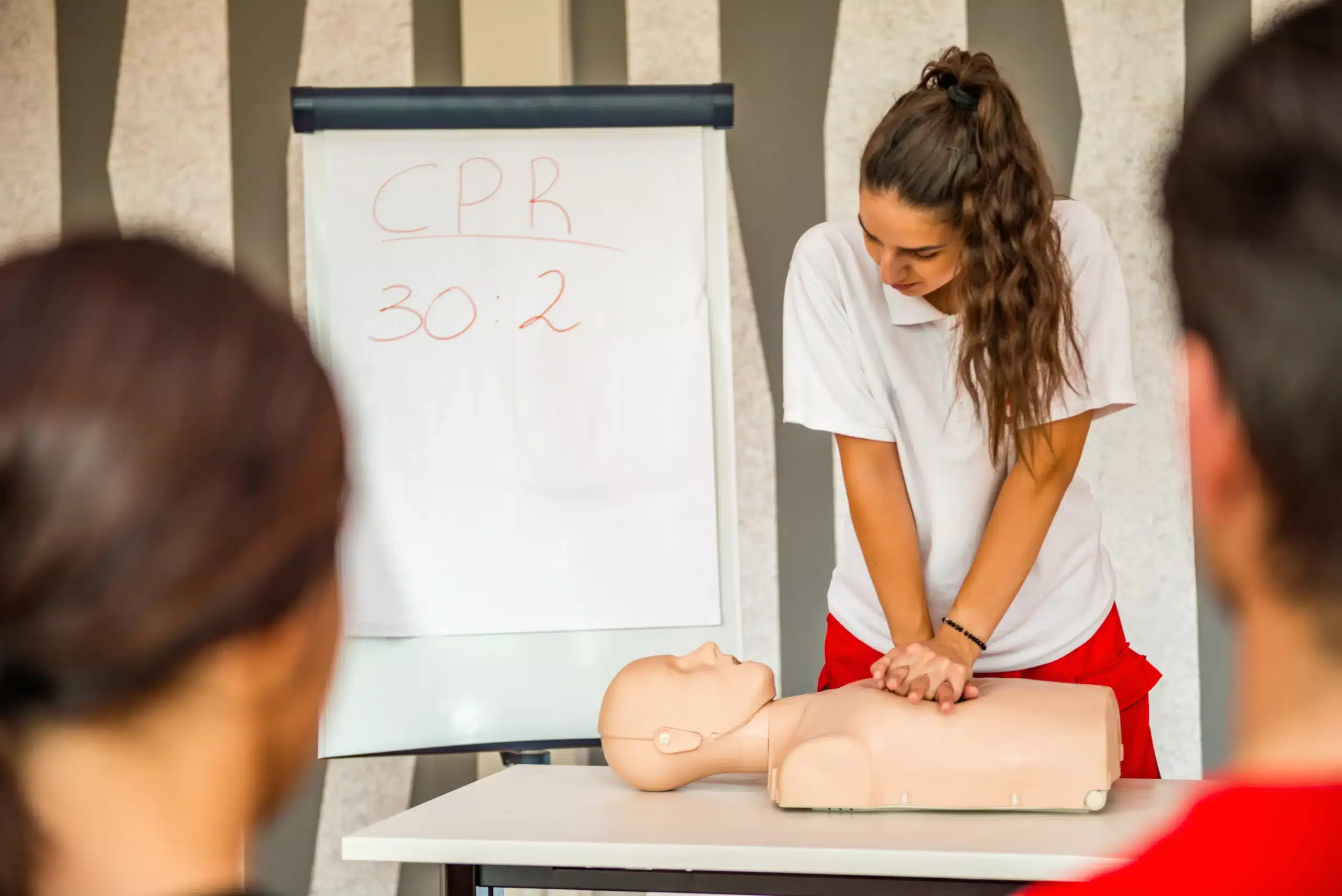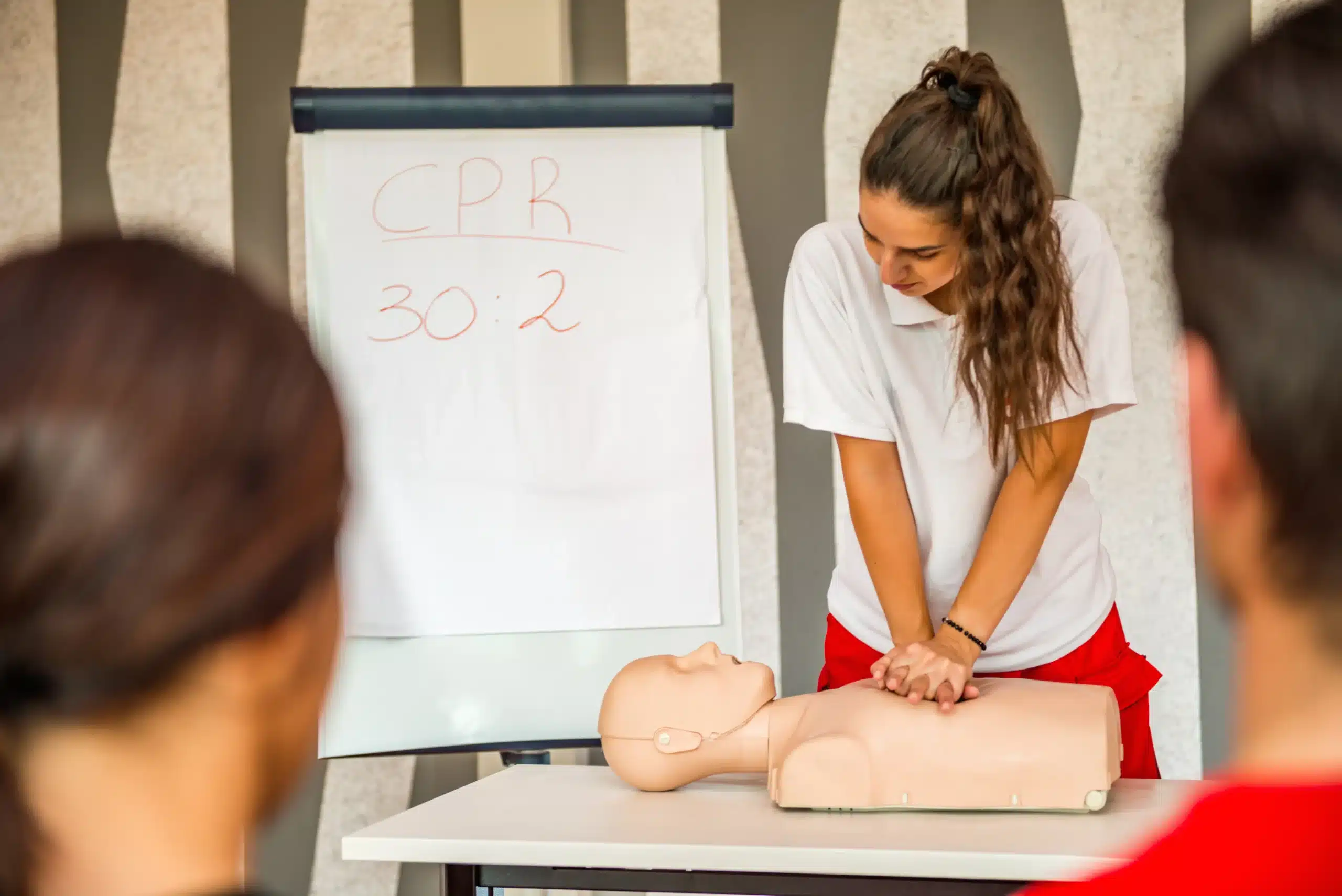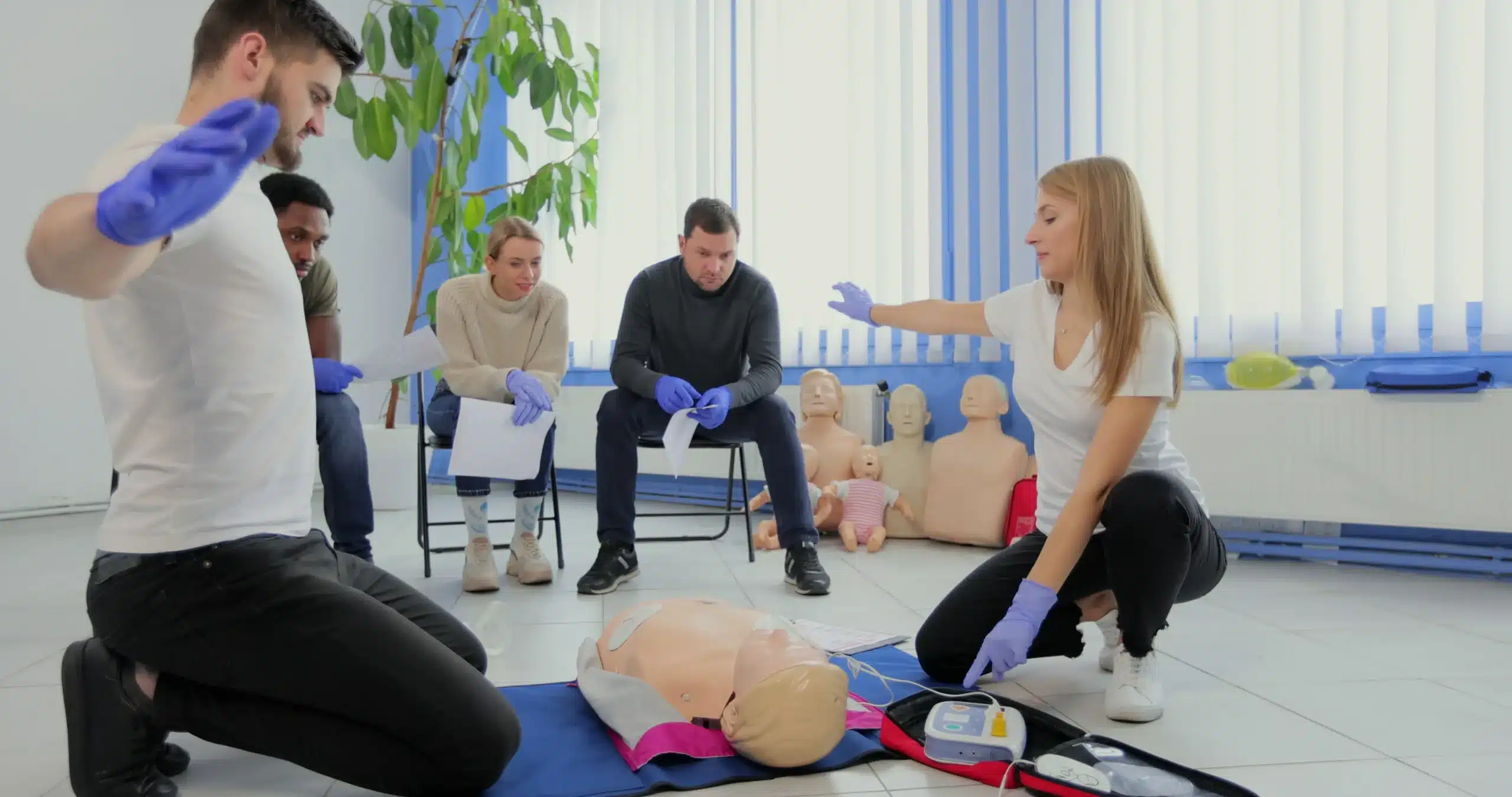CPR is a vital skill that can make a world of difference in an emergency. But certifications expire, and skills can fade without practice. This guide makes CPR renewal in Concord easy and stress-free. We’ll cover everything from the importance of renewal and the different certification levels to finding the right course and understanding the costs. We’ll also address common challenges, such as fitting renewal into a busy schedule and overcoming anxiety about performing CPR. Whether you’re a healthcare worker, a teacher, or simply someone who wants to be prepared, this guide will help you confidently navigate the process of CPR renewal in Concord.
Key Takeaways
- CPR renewal keeps your skills sharp and ensures you’re ready to respond to emergencies. Find a convenient course format—in-person, online, or blended—that fits your learning style and schedule. Stay current with the latest guidelines and maintain your certifications.
- Select a CPR provider that meets your specific needs. Look for AHA-certified courses, convenient locations, and competitive pricing. Consider providers like Concord CPR Classes, which offers various courses and discounts.
- Regular practice and continuing education are crucial for maintaining your CPR skills long-term. Take advantage of hands-on training opportunities and consider refresher courses to build confidence and reinforce your knowledge.
What is CPR Renewal in Concord?
What is CPR renewal and why is it important?
CPR renewal keeps your life-saving skills sharp. It’s a refresher course covering core techniques like chest compressions, rescue breaths, and using an AED. Think of it as a tune-up for your skills, making sure you’re ready to respond confidently in an emergency. Regularly updating your training, especially for healthcare professionals, is crucial for maintaining current certifications and providing the best possible care. You’ll find several BLS renewal options, including in-person classes, online courses, and blended learning formats. Staying up-to-date on the latest guidelines and techniques ensures you’re prepared to handle any situation and demonstrates your commitment to patient safety.
How long is my CPR certification valid?
CPR certifications are typically valid for two years. This timeframe reflects the understanding that skills can decline over time without regular practice. It’s important to renew your certification before it expires to avoid any gaps in your qualifications. Renewal must occur within 30 days of expiration; otherwise, you’ll likely need a full recertification course. Keeping track of your certification’s expiration date and scheduling your renewal in advance ensures you’re always prepared to respond to emergencies and maintain your professional standing. Many organizations and employers require current CPR certification.
Find Your CPR Renewal Course in Concord
Which CPR courses are available?
Before you jump into finding a CPR class, it’s helpful to know which certifications are out there. Basic CPR skills are covered in any CPR course, but healthcare providers often need more advanced training. The American Heart Association (AHA) offers several levels of CPR certification, including Basic Life Support (BLS), Advanced Cardiovascular Life Support (ACLS), and Pediatric Advanced Life Support (PALS). Concord CPR Classes offers AHA-compliant BLS courses that cover these essential skills, ensuring you’re equipped with the most current knowledge and techniques. For healthcare professionals needing a quicker certification route, consider the RQI program also offered through the AHA.
In-person, online, or hybrid: Which learning style suits you?
CPR courses are offered in several formats, so you can choose what works best for your schedule and learning style. In-person classes provide hands-on training and direct interaction with an instructor. Online courses offer flexibility, allowing you to learn at your own pace from anywhere. Hybrid courses combine online learning with in-person skills sessions, giving you the best of both worlds. BLS renewal costs in Concord, CA, depend on the training provider, course format (online, in-person, or blended), and any included materials. Consider which format best suits your learning style and availability.
Local CPR providers: Who’s the best fit?
Finding the right CPR provider is key to a positive learning experience. Here are a few options in the Concord area:
Concord CPR Classes
Concord CPR Classes offers AHA-certified courses, the gold standard in CPR training. They provide various courses, including BLS, ACLS, and PALS, catering to different professional needs. They also offer discounted group classes and a low-price guarantee. Serving Concord, Walnut Creek, and Pleasant Hill, they are a convenient option for those in the East Bay.
Safety Training Seminars
Safety Training Seminars also offers AHA-certified courses in BLS, ACLS, PALS, CPR, and First Aid. Their streamlined approach makes learning these vital skills more manageable for busy professionals.
American Red Cross
The American Red Cross offers CPR classes in three formats: in-person, online, and blended learning (a mix of online and in-person). This variety allows you to choose the format that best suits your needs.
CPR Training Center
The CPR Training Center in Concord specializes in ACLS courses and offers AHA-certified CPR training and CPR renewal online through their American Heart Association-authorized CPR certification and renewal centers.
CPR Renewal Costs & Scheduling
CPR renewal in Concord doesn’t have to break the bank. Knowing the typical costs and available discounts can help you budget effectively. Plus, finding a convenient time to recertify is easier than you think.
How much does CPR renewal cost?
CPR renewal courses in Concord typically range from $70 to $90 for in-person training, including instruction, materials, and certification. This price covers the hands-on nature of these classes and the personalized feedback you receive. If you’re on a tighter budget, online renewal courses offer a more affordable option, generally costing between $50 and $70. Learn more about our CPR renewal courses and current pricing.
Are there group discounts or special offers?
Yes! If you’re certifying a group, such as your workplace team or a community organization, look for group discounts. Concord CPR Classes offers discounted rates for group training, making it a cost-effective way to ensure everyone stays certified.
When are classes available?
We understand you’re busy, so Concord CPR Classes offers convenient daily certification courses to fit your schedule. Classes are held regularly near Todos Santos Plaza on Galindo Street in downtown Concord. Find a class time that works for you.
Renew Your CPR Certification: Here’s How
Getting your CPR certification renewed is straightforward. This section walks you through the process so you know what to expect.
How do I renew my certification?
First, find an accredited training provider like Concord CPR Classes. You can choose from several convenient learning formats, including in-person classes, online courses, and blended learning options that combine online learning with in-person skills practice. In-person CPR renewal classes in Concord typically cost between $70 and $90, while online renewal courses are often more budget-friendly, ranging from $50 to $70. After registering, you’ll receive instructions on how to prepare for your class.
What will I learn in the course?
Renewal courses cover the same core CPR skills as initial certification courses, but with updated guidelines and techniques. You’ll review how to recognize the signs of a cardiac arrest, perform chest compressions and rescue breaths, and use an automated external defibrillator (AED). AHA-compliant BLS courses at Concord CPR Classes also cover choking relief and basic first aid. The goal is to refresh your knowledge and ensure you’re prepared to respond confidently in a real-life emergency.
Will I use feedback devices to improve my skills?
Many CPR renewal courses, especially those following AHA guidelines, incorporate feedback devices during practice. These devices measure the depth and rate of your chest compressions, providing real-time feedback so you can refine your technique and improve the effectiveness of your CPR. This hands-on practice with feedback is crucial for building muscle memory and confidence.
Does the course follow AHA guidelines?
Concord CPR Classes offers AHA-certified courses that adhere to the latest guidelines for emergency cardiovascular care. Choosing an AHA-compliant course ensures you’re learning the most up-to-date and evidence-based practices, giving you the skills to provide the best possible care in an emergency. After completing the course, you’ll receive your renewed CPR certification card, valid for two years.
Common CPR Renewal Challenges: Solved
We get it—life gets busy. Renewing your CPR certification might feel like one more thing on your to-do list. But trust me, it’s worth prioritizing. This section tackles common renewal hurdles and offers simple solutions to make the process smoother.
How do I fit renewal into my busy schedule?
Finding time for CPR renewal can be tricky, but Concord CPR Classes offers convenient daily certification courses to make it easier. They offer classes on weekdays, weeknights, and weekends to accommodate various work schedules and personal commitments. You can find a time that works for you without disrupting your routine.
Are there affordable CPR renewal options?
CPR renewal doesn’t have to break the bank. BLS renewal costs in Concord vary, but providers like Concord CPR Classes offer competitive rates and often have group discounts available. Check their website or give them a call to explore cost-effective options. Sometimes, employers will even cover the cost of renewal, so it’s worth checking with your HR department. For those seeking online renewal, many providers offer more budget-friendly online courses.
How can I remember my CPR skills?
It’s normal to feel a little rusty if it’s been a while since your last CPR training. The best way to refresh your skills and build confidence is through hands-on practice. Look for classes with lots of hands-on training and opportunities for personalized feedback. This approach reinforces what you’ve learned and helps you retain those skills for the long term.
What if I’m anxious about performing CPR?
Feeling anxious about performing CPR is completely understandable. Many people share this concern. A good CPR renewal course will create a supportive learning environment where you can ask questions, practice in a safe setting, and receive guidance from experienced instructors. AHA-compliant BLS courses like those offered by Concord CPR Classes cover essential skills and techniques, giving you the confidence to act in an emergency. Remember, even seasoned professionals review and practice regularly. Renewal courses are designed to address these anxieties and empower you to respond effectively.
Get the Most Out of Your CPR Renewal
So, you’re ready to renew your CPR certification—great! Now, how can you make this renewal experience really count? Here’s how to choose the right course, keep your skills sharp, and understand how CPR certification can benefit your career.
How do I choose the right CPR provider?
Finding the right CPR provider is the first step. Think about your priorities. Is it a convenient location? Concord CPR Classes serves Concord, Walnut Creek, and Pleasant Hill. Or, maybe you need a specific type of course, such as the American Heart Association BLS, ACLS, or PALS certifications. Do you prefer in-person learning, the convenience of online courses, or a blended approach? Some providers, like Concord CPR Classes, offer discounted group classes. For healthcare professionals looking for a quicker option, the RQI program might be a good fit. Research different providers and find one that meets your needs and learning style. For more tips, check out our blog post on BLS renewal.
How do I maintain my CPR skills long-term?
CPR isn’t something you learn once and forget. It requires regular practice and continuing education. Consider refresher courses or practice sessions to stay sharp. Even something as simple as reviewing the steps or watching videos can help. See our guide to CPR training in Concord for more tips on maintaining your skills.
Why are hands-on practice and feedback important?
Hands-on practice builds muscle memory and confidence. Look for renewal courses that offer plenty of opportunities to practice on mannequins and receive personalized feedback. This helps you identify areas for improvement and solidify your technique. Our BLS certification guide has more information on the importance of hands-on training.
How can my CPR certification help my career?
A current CPR certification can open doors in many fields. It shows you’re committed to safety and can handle emergencies. For healthcare professionals, it’s often a job requirement and demonstrates your dedication to quality care. AHA courses often incorporate feedback devices during training to ensure you learn effective techniques. This can make you a more valuable employee in your current role or help you stand out when applying for new jobs. Learn more about the benefits of AHA courses in our blog post.
Related Articles
- Why CPR is Critical in Healthcare
- BLS Renewal in Concord: Your Complete Guide – Concord CPR Classes
- CPR Classes in Concord: Find Training Near You – Concord CPR Classes
- BLS for Healthcare Providers in Concord: A Complete Guide – Concord CPR Classes
- ACLS Renewal in Concord: Your Complete Guide – Concord CPR Classes
Frequently Asked Questions
How often do I need to renew my CPR certification? CPR certifications are typically valid for two years. It’s essential to renew before it expires to maintain your qualifications and preparedness for emergencies.
What are the different types of CPR certifications available? Several CPR certifications cater to different needs. Basic Life Support (BLS) is commonly required for healthcare providers and covers core CPR skills. Advanced Cardiovascular Life Support (ACLS) and Pediatric Advanced Life Support (PALS) provide more specialized training for medical professionals.
How much does CPR renewal cost in Concord, CA? CPR renewal costs vary depending on the training provider, course format (online, in-person, or blended), and included materials. In-person classes typically range from $70 to $90, while online renewals are often between $50 and $70. Group discounts may also be available.
What if I have a busy schedule and can’t find time for a class? Many CPR training providers offer flexible scheduling options, including weekday, weeknight, and weekend classes, to accommodate busy schedules. Online courses also provide a convenient way to learn at your own pace and from anywhere.
What if I’m nervous about performing CPR in a real emergency? It’s normal to feel anxious about using your CPR skills in a real-life situation. Quality CPR courses create a supportive learning environment with experienced instructors who can address your concerns and build your confidence through practice and feedback.


